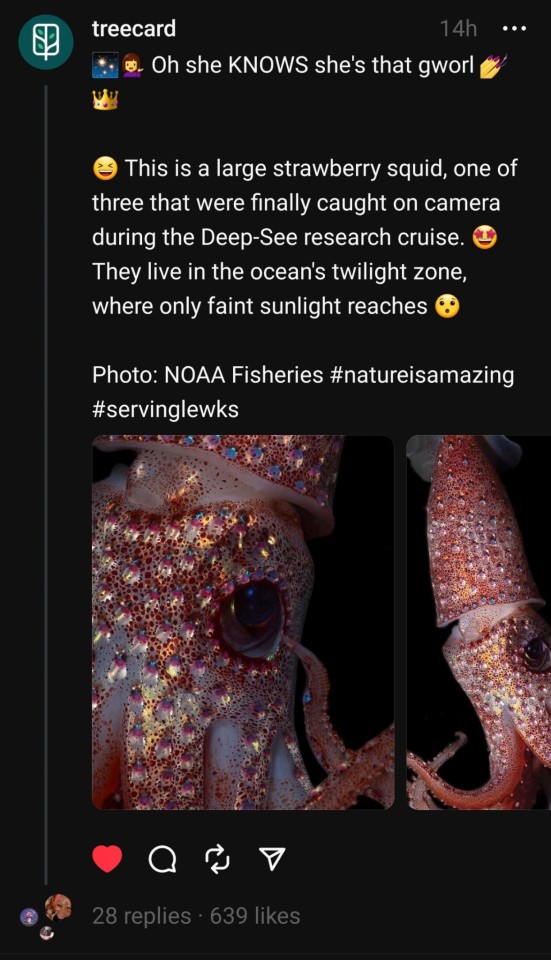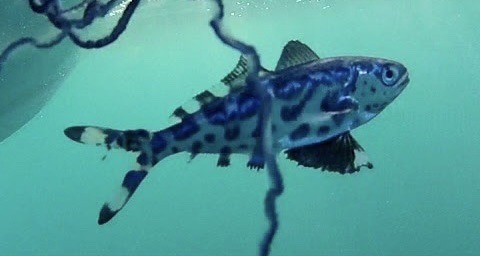LETS GO!!! YES!!!
LETS GO!!! YES!!!


Big win for Little Dudes everywhere!!!
More Posts from Mermaidfrenzy and Others


Zebra sharks got their name from the stripes they have as pups which become spots when they become adults.
sharks are just like giant kitties tbh. they’re just curious silly little creatures. they’re just interested in what’s around them. they bite you the same way a cute little kitty bites you. they’re just trying to get to know you. why do you hate them so so much they think you’re interesting and they’re cute. leave them alone

Daily Cephalopod #2



Daily Jellyfish: Day 3
Atolla Jellyfish
Fun Facts
This species of Jellyfish uses bioluminescent defense technique in which it launch several bright flashes as its being attacked in hopes to attract a larger predator interested in its attacker more then itself.
For the previously said reason, this jellyfish has earned the title of the alarm Jellyfish.
They are considered deep sea creatures, living between 1000m to 4000m in depth around the globe.
Is it known what baby coelacanths look like??
Yes! An expedition filmed one in Manado Bay, North Sulawesi, Indonesia in 2009!

"It was measured by a laser beam from the R.O.V. to be 31.5cm. The fish was positioning itself in a small cave."




Wake up babe new fish dropped
Call me sessile because I'm attached to one place (you)
benthic rizz
Today is Wet Beast Wednesday!
Today’s wet beast is: Man-of-war Fish


Olive’s wet beast fact: this little fishy has evolved to live within the extremely dangerous tentacles of the Portuguese Man O’ War. It is here that the fish feasts upon their gonads. Happy Pride.
Stay tuned for more Wet Beast Wednesdays!
The Sea Creature of the day is the Moon Jelly!!




These absolutely beautiful creatures can essentially be found anywhere in the world and are one of the most commonly seen species of sea jelly.
A fun fact, though the immortal jellyfish is most commonly known for it, moon jellies too can revert back in their life cycle to the polyp stage if exposed to environmental stress. Through this, a single jelly can keep itself alive for a longggg time.

Vessel sound is temporarily causing hearing loss in squids
Globally, anthropogenic sounds have become louder and more persistent, however, little is known about how invertebrates detect and respond to human-made sound. Now, new research shown noise associated with boats causes causes temporal hearing loss in squids across different stages of their life cycle.
The hummingbird bobtail squid (Euprymna berryi) has a short lifespan of at least 6 months, which make them a convenient animal for lab studies. Hearing and behavioural observations were made by researchers before, during and after 15 minutes of vessel sound playback, to test how these squids react to noise pollution, and noted that these squids decrease their hearing sensitivity after exposure to noise, and particularly noise affected juveniles. Juvenile squids experienced an important hearing loss sensitivity after noise exposure between 400 and 800 Hz, while adult and mature squids decreased their sensibility after 200 to 600 Hz exposure, showing more resistence. All squids recovered auditory sensitivity within two hours.
Researchers aim the inclusion of cephalopods within management and policy, because anthropogenic activities and associated sound levels in the ocean are increasing, while the role sound plays in cephalopod life history is only just beginning to be understood.
Photo by Pascal Girard
Reference () Putland et al. 2023. Vessel sound causes hearing loss for hummingbird bobtail squid (Euprymna berryi). Frontiers in Marine Science
-
 kissing-by-the-sea liked this · 1 year ago
kissing-by-the-sea liked this · 1 year ago -
 90sbee reblogged this · 1 year ago
90sbee reblogged this · 1 year ago -
 fairyprince7 liked this · 1 year ago
fairyprince7 liked this · 1 year ago -
 fairyprince7 reblogged this · 1 year ago
fairyprince7 reblogged this · 1 year ago -
 ant-bunny liked this · 1 year ago
ant-bunny liked this · 1 year ago -
 spencer-the-fox-87 liked this · 1 year ago
spencer-the-fox-87 liked this · 1 year ago -
 starlos-soulmate liked this · 1 year ago
starlos-soulmate liked this · 1 year ago -
 seirospropaganda reblogged this · 1 year ago
seirospropaganda reblogged this · 1 year ago -
 jadedjoshe reblogged this · 1 year ago
jadedjoshe reblogged this · 1 year ago -
 jadedjoshe liked this · 1 year ago
jadedjoshe liked this · 1 year ago -
 deregirls reblogged this · 1 year ago
deregirls reblogged this · 1 year ago -
 fagcrush reblogged this · 1 year ago
fagcrush reblogged this · 1 year ago -
 deregirls liked this · 1 year ago
deregirls liked this · 1 year ago -
 rookie-highs reblogged this · 1 year ago
rookie-highs reblogged this · 1 year ago -
 7dreamondreamer liked this · 1 year ago
7dreamondreamer liked this · 1 year ago -
 weegee32235 reblogged this · 1 year ago
weegee32235 reblogged this · 1 year ago -
 moolthecow reblogged this · 1 year ago
moolthecow reblogged this · 1 year ago -
 moolthecow liked this · 1 year ago
moolthecow liked this · 1 year ago -
 sumechiayuu reblogged this · 1 year ago
sumechiayuu reblogged this · 1 year ago -
 sumechiayuu liked this · 1 year ago
sumechiayuu liked this · 1 year ago -
 nightingaleinberkleysquare liked this · 1 year ago
nightingaleinberkleysquare liked this · 1 year ago -
 akerensumi-is-canon reblogged this · 1 year ago
akerensumi-is-canon reblogged this · 1 year ago -
 mak-ar liked this · 1 year ago
mak-ar liked this · 1 year ago -
 goosse liked this · 1 year ago
goosse liked this · 1 year ago -
 awesometheuniverse liked this · 1 year ago
awesometheuniverse liked this · 1 year ago -
 brungeons-and-bragons reblogged this · 1 year ago
brungeons-and-bragons reblogged this · 1 year ago -
 brungeons-and-bragons liked this · 1 year ago
brungeons-and-bragons liked this · 1 year ago -
 dissecttheworld reblogged this · 1 year ago
dissecttheworld reblogged this · 1 year ago -
 mwah-ah-ahh reblogged this · 1 year ago
mwah-ah-ahh reblogged this · 1 year ago -
 mwah-ah-ahh liked this · 1 year ago
mwah-ah-ahh liked this · 1 year ago -
 mewbear reblogged this · 1 year ago
mewbear reblogged this · 1 year ago -
 mubeardoodles liked this · 1 year ago
mubeardoodles liked this · 1 year ago -
 itsyaboyredacted liked this · 1 year ago
itsyaboyredacted liked this · 1 year ago -
 foxxs liked this · 1 year ago
foxxs liked this · 1 year ago -
 sugar-plum-faggot liked this · 1 year ago
sugar-plum-faggot liked this · 1 year ago -
 sillystinker liked this · 1 year ago
sillystinker liked this · 1 year ago -
 mxamalgam liked this · 1 year ago
mxamalgam liked this · 1 year ago -
 surelynotapornbot liked this · 1 year ago
surelynotapornbot liked this · 1 year ago -
 warsche liked this · 1 year ago
warsche liked this · 1 year ago -
 warsche reblogged this · 1 year ago
warsche reblogged this · 1 year ago -
 no1here0423 reblogged this · 1 year ago
no1here0423 reblogged this · 1 year ago -
 no1here0423 liked this · 1 year ago
no1here0423 liked this · 1 year ago -
 underwaterduck liked this · 1 year ago
underwaterduck liked this · 1 year ago -
 crabait liked this · 1 year ago
crabait liked this · 1 year ago -
 it-becomes-so liked this · 1 year ago
it-becomes-so liked this · 1 year ago -
 werewolfstonertboy liked this · 1 year ago
werewolfstonertboy liked this · 1 year ago -
 poltergeistfiend liked this · 1 year ago
poltergeistfiend liked this · 1 year ago
